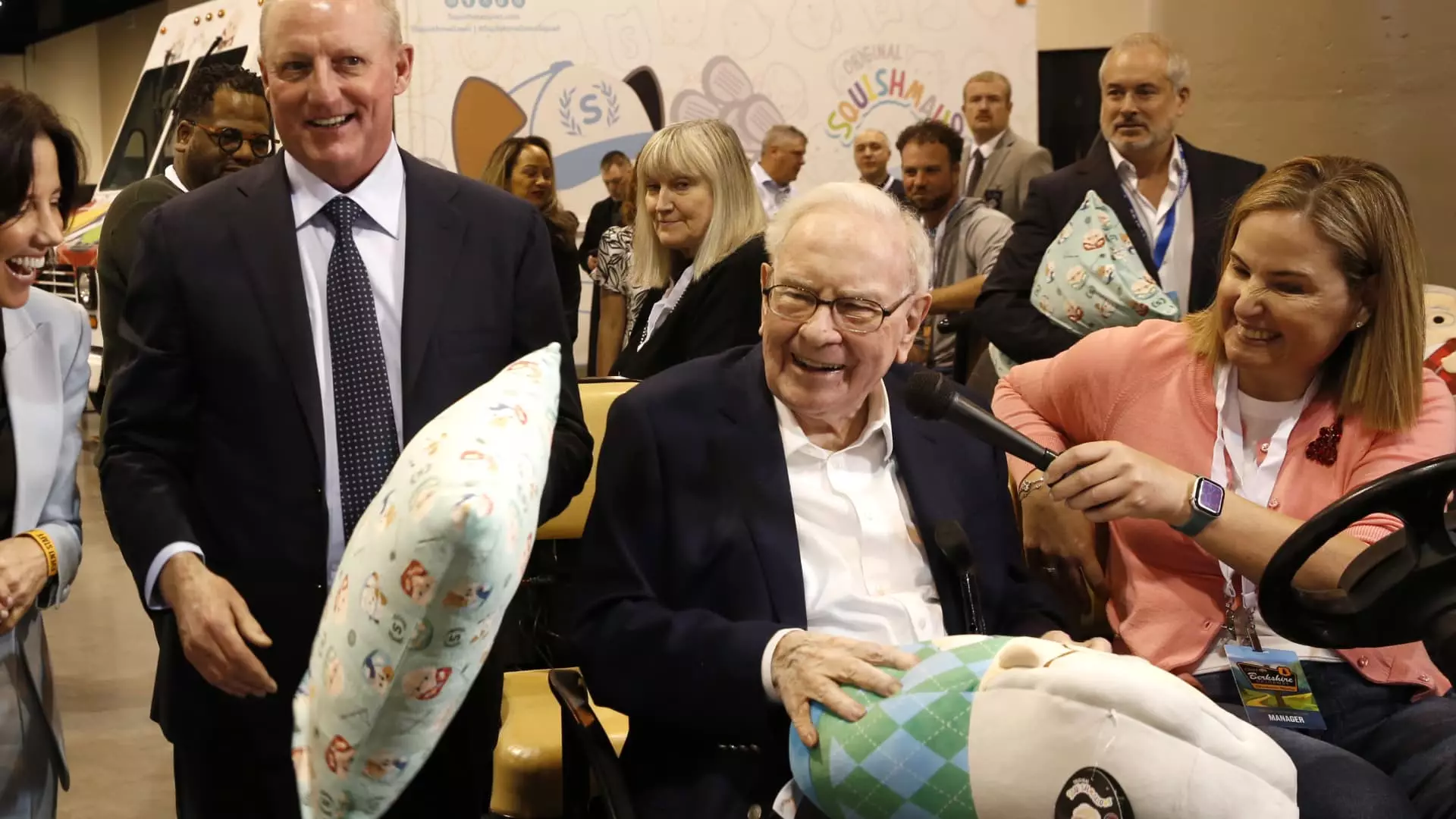In a stunning turn of events, Warren Buffett, the legendary investor and CEO of Berkshire Hathaway, announced at the company’s annual meeting in Omaha that he plans to step down from his role, passing the leadership baton to Greg Abel by the end of the year. This monumental shift comes at a time when Buffett is 94 years old and has spent decades transforming a struggling textile mill into an investment behemoth with a market capitalization nearing $1.2 trillion. Although Abel has been designated as Buffett’s successor since 2021, the timing of this announcement still caught the audience of 40,000 Berkshire shareholders off guard, underscoring the emotional weight of the moment.
Buffett’s declaration, made in the meeting’s final minutes, revealed his intention to formally discuss the transition with the board, drawing attention to the fact that only two of the directors—his children—were privy to the information beforehand. This speaks volumes about Buffett’s style, which has always been shrouded in an air of both secrecy and thoughtfulness. By revealing his plans during the meeting, Buffett ensured that the shareholders felt a part of the historic moment, echoing his longstanding commitment to transparency and community engagement.
Buffett’s Legacy: More Than Just Numbers
Warren Buffett’s legacy transcends financial metrics and corporate accomplishments; it embodies a profound philosophy of investing based on ethics and long-term vision. His steady growth of Berkshire Hathaway into a diversified conglomerate, encompassing ventures such as Geico insurance and BNSF Railway, reflects a relentless focus on sustainable advantages and prudent capital allocation. Yet, underscoring his immense longevity in the business world is the notion that someone must eventually step aside. Interestingly, Buffett believes that Abel’s hands-on approach will better serve the complex operation of Berkshire’s over 60 subsidiaries.
While announcing the upcoming leadership change, Buffett didn’t shy away from self-criticism, recognizing that his more laid-back management style may have become a liability. “It’s working way better with Greg than with me,” Buffett stated candidly, suggesting that he has come to terms with the cold reality that the company’s stewardship necessitates a new, vigorous approach—a necessary evolution as business landscapes continuously shift.
Greg Abel: Prepared for the Challenge
Greg Abel, a Canadian executive with a commendable track record, has spent 25 years immersed in the Berkshire Hathaway ecosystem. His ascent from the helm of MidAmerican Energy to now inheriting the leadership of one of the world’s most influential investment firms signifies not just a passing of the torch but an affirmation of Abel’s capabilities. He emphasizes that his leadership will align closely with Buffett’s value-driven investment philosophy, ensuring continuity while also preparing Berkshire for the challenges ahead.
Yet, one cannot ignore the nuances of a transition like this. Abel must navigate his relationship with Buffett to preserve the culture fostered by the Oracle of Omaha. There is a palpable debate regarding whether Abel should also take on the chairman role, an aspect that could affect both his authority and decision-making power as he implements changes in the company. As the world of investment continues to evolve at breakneck speed, creating an identity separate from Buffett while leveraging his legacy may prove to be a delicate balance.
What Lies Ahead for Berkshire Hathaway?
For those concerned about the future under new stewardship, one can find solace in Buffett’s unwavering confidence in Abel. As Buffett stated, he has no intentions of selling his shares, asserting, “I think the prospects of Berkshire will be better under Greg’s management than mine.” This faith serves as a critical endorsement, promising a continuity of Buffett’s ethical investment philosophy that has built Berkshire’s distinctive corporate culture.
Nevertheless, with the economic landscape transforming rapidly, Abel faces a multitude of hurdles in a shifting market, driven by technological advancements and socio-economic changes. His upcoming capital allocation decisions—fueled by Berkshire’s formidable cash reserves of nearly $347 billion—will undoubtedly define how the company navigates potential opportunities in a post-Buffett era. The stakes have never been higher.
A Community United in Transition
As shareholders and stakeholders process this significant shift, the outpouring of emotion—from gratitude to uncertainty—will likely resonate throughout the investment community. Buffett’s departure marks not only a significant change for Berkshire Hathaway but also a broader reflection on leadership, legacy, and the dynamics of power in corporate America. Long celebrated as an oracle for aspiring investors, Buffett’s wisdom through turbulent times has shaped countless lives and careers.
It’s a new dawn at Berkshire, with Greg Abel poised to take the helm, but the lessons imparted by Buffett’s philosophy, strategic thinking, and commitment to community engagement will linger. The standing ovation that echoed through the meeting hall was not merely a farewell to a man but an acknowledgement of an indelible legacy—a reminder that while an era may be concluding, the impact will endure for generations to come.

